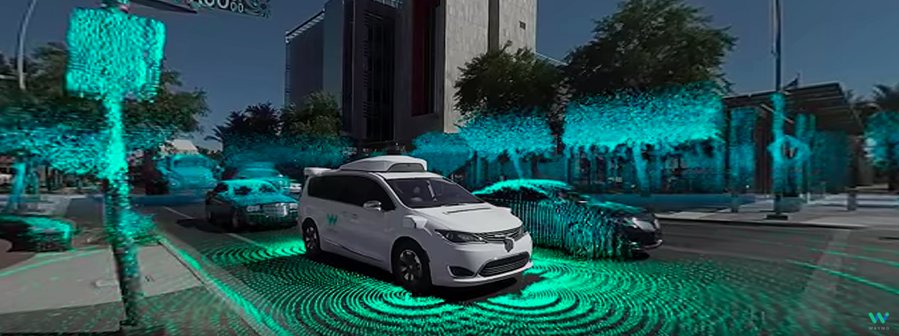Waymo self-driving video seeks to reassure wary riders

Waymo on Wednesday showed off a 360-degree video to help people envision what it is like to ride inside an autonomous vehicle, as the Alphabet Inc company on the cusp of launching self-driving rides with real people hopes to win over potential passengers.
Waymo said in a blog post that it had driven more than 5 million miles (8.05 million km) on public roads, doubling its miles since January 2017, when it unveiled its improved self-driving system installed in Chrysler Pacifica minivans at the Detroit auto show.
Waymo's blog linked to a 3-minute, 36-second video posted on YouTube (and shown above). It comes ahead of what will be Waymo's first foray into ride hailing with no human behind the steering wheel in Phoenix, Arizona, in coming months.
Convincing a public who is potentially wary of the merits — and safety — of self-driving is a key goal of Waymo, considered a pioneer in the global race to deploy autonomous vehicles.
A Gallup poll published last week found that 54 percent of the 3,297 U.S. respondents said they were "unlikely" to use self-driving cars, with 59 percent saying they would feel uncomfortable riding in one. The survey was conducted in September and October.
Large tech companies, big automakers and well-funded startups have been testing such cars, but for the most part real passengers have not yet been added to the mix. Experts believe self-driving cars used in fleets for ride hailing services are among the most economically viable ways to deploy such technology broadly.
The state of Arizona has no restrictions on self-driving cars, which has made it a key testing ground for the technology.
Waymo said in November that members of the public using a ride-hailing app would be able to ride in its fleet of minivans in ensuing months. At first, a Waymo employee would accompany the passengers in the backseat, but eventually they will travel alone. The company has been testing its cars in Arizona with an employee in the back seat and no one at the wheel since October.
The passenger service is expected to roll out in more geographical areas in the United States, at a later, unannounced date.
Nouvelles connexes


